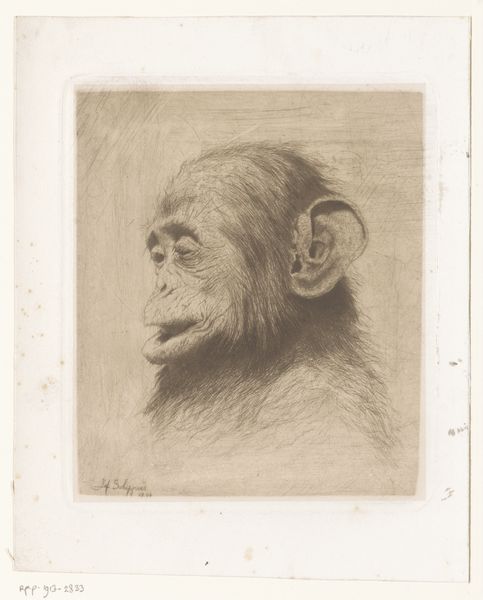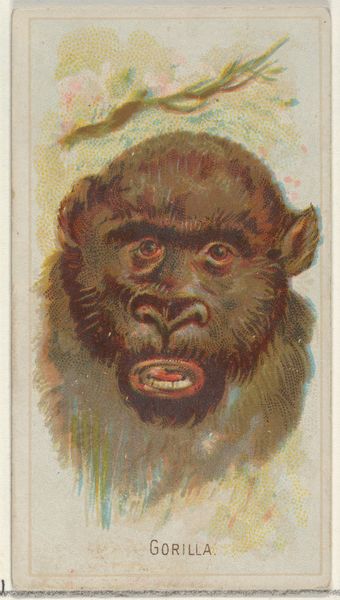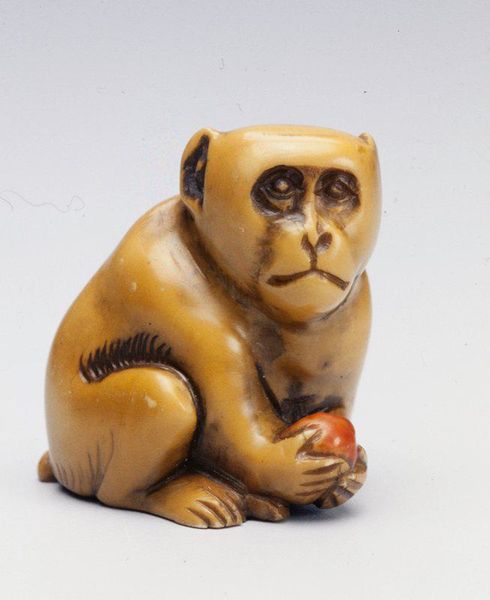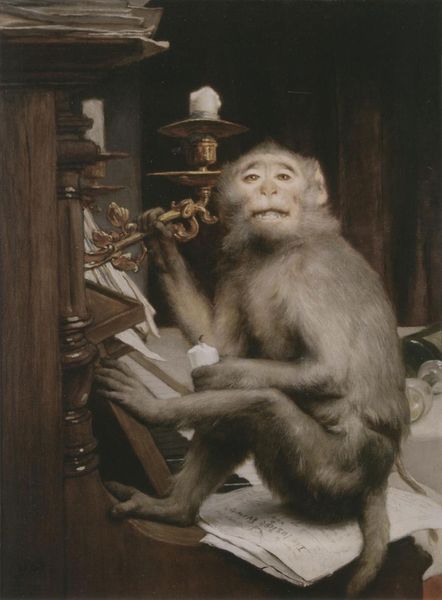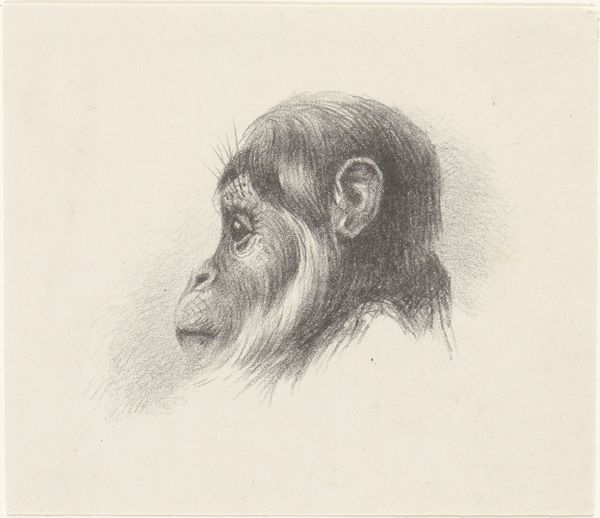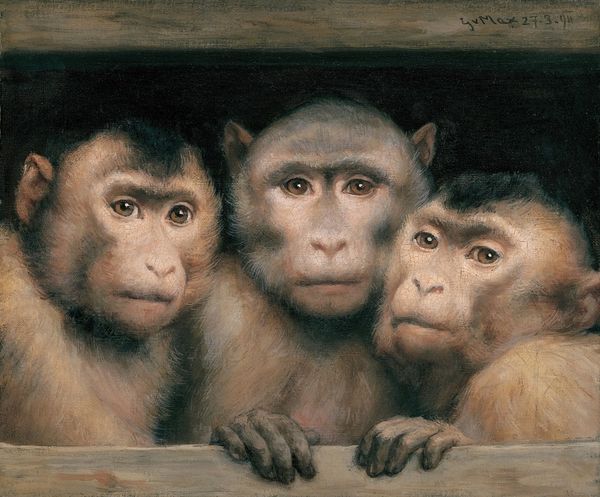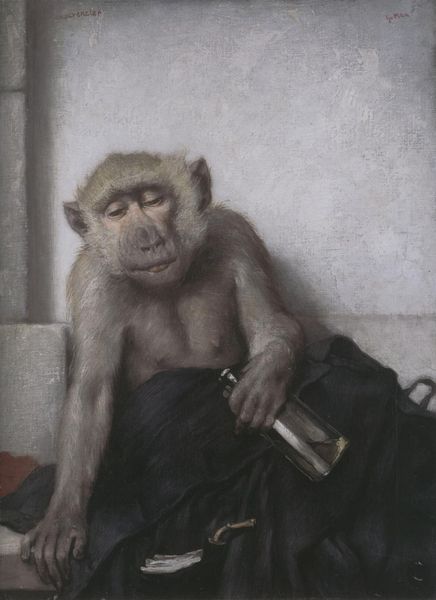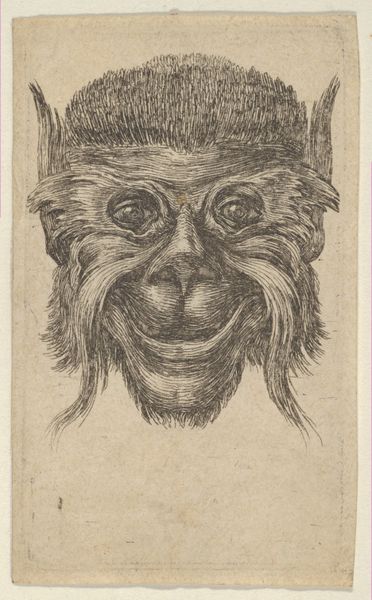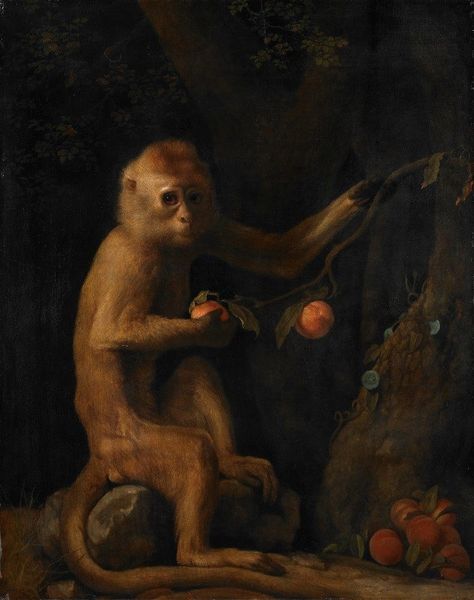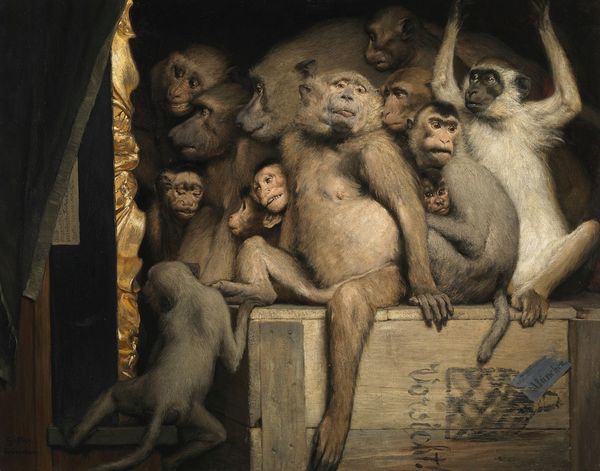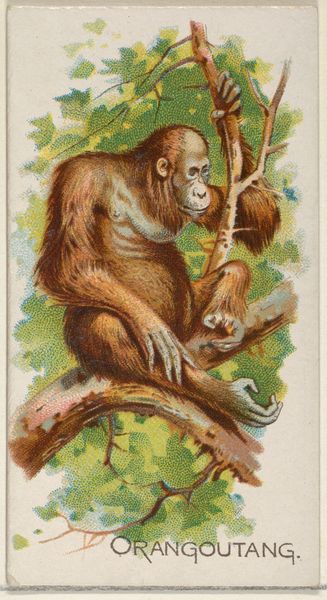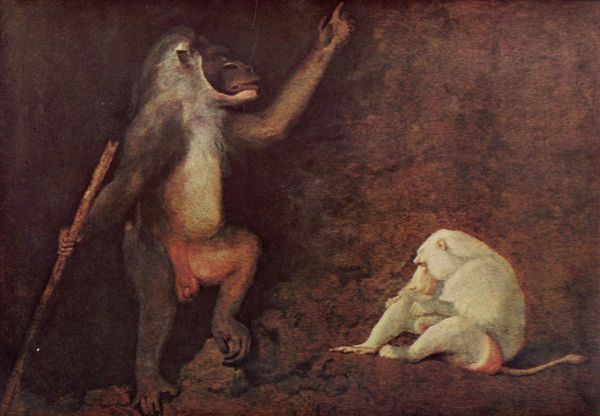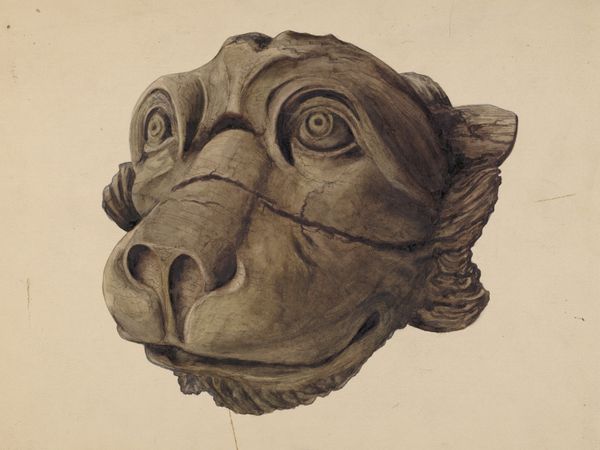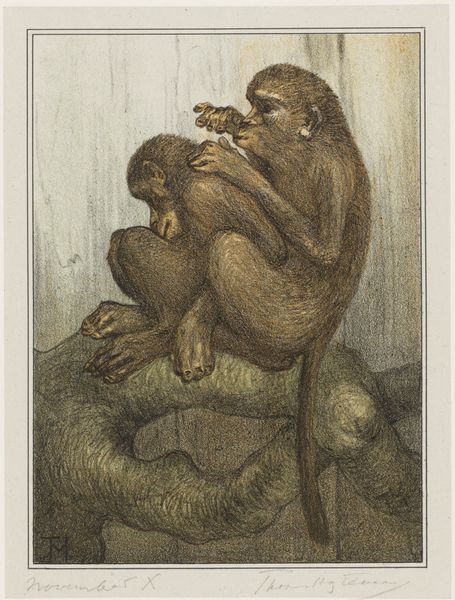
Monkey head smoking a pipe 1845
0:00
0:00
alexandregabrieldecamps
Musée des Beaux-Arts de Bordeaux, Bordeaux, France
#
abstract expressionism
#
abstract painting
#
head
#
charcoal drawing
#
possibly oil pastel
#
oil painting
#
fluid art
#
acrylic on canvas
#
underpainting
#
animal drawing portrait
#
watercolor
Copyright: Public domain
Curator: The mood that immediately strikes me here is one of profound contemplation, perhaps even melancholy. Editor: Indeed. Let's explore "Monkey Head Smoking a Pipe" painted circa 1845 by Alexandre-Gabriel Decamps. Its location now is Musée des Beaux-Arts de Bordeaux, France. Curator: The application of tone, predominantly warm browns and golds, create a kind of luminosity while emphasizing the subject’s brow. It speaks volumes. There’s incredible detail, particularly in rendering the fur and the texture of the monkey’s skin, using an almost pointillistic application. Editor: Decamps, you see, was associated with the Orientalist movement. Animal imagery allowed him to critique society indirectly, using anthropomorphic symbolism that became increasingly popular through the 19th Century. Curator: Notice, however, that the structure of the composition, tight and centered, focuses on the monkey’s profile, highlighting his knowing gaze and capturing both vulnerability and authority. The pipe is just a tool, of course. Editor: Pipes and tobacco often signaled leisure and perhaps a sly critique of bourgeois habits in that period, you see. Decamps engaged with social commentaries using bestial form, and these became veiled yet potent messages. Curator: True. The formal elements of the work serve these social themes by lending this monkey a very individualistic, contemplative air. One may analyze its implications through semiotics—its essence surpasses its status as mere simian imagery. Editor: Absolutely. Decamps effectively turns the canvas into a mirror. "Monkey Head Smoking a Pipe," created in the mid-19th century, functions as more than an animal portrait. It reflects evolving cultural norms through a seemingly innocuous image. Curator: In retrospect, the artwork makes effective utilization of dark colors and concentrated light to create tension; I can discern a sense of dignity from Decamp’s subject, thus disrupting and challenging our understanding of its subject matter and status. Editor: It has certainly encouraged me to reassess my understanding of the power of the period and the museum’s roles in representing that complicated imagery!
Comments
No comments
Be the first to comment and join the conversation on the ultimate creative platform.
